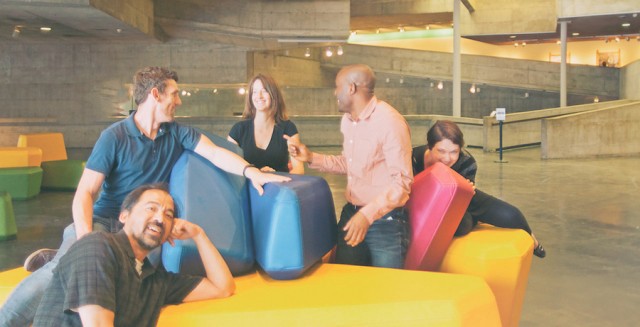‘Don’t Eat My Oatmeal’: Working With Colleagues Who Don’t Like You
by Leda Marritz

In many respects, the skills that we learn in school are not very good preparation for work. Success at work often doesn’t involve being obedient, following instructions, or even necessarily completing assignments on time (all the abilities that school achievement is built on). There is one way, though, in which being in school and being in the working world are quite similar: having to collaborate and work closely with different, sometimes non-compatible, personalities.
When I was just a couple years into my career, I started a new job where I was at a major social deficit before I even started, because (I later learned) my boss had hired me without much input from the other people at the company. On my first day, I was excited and nervous. It actually did feel kind of like starting at a new school. Would the other kids like me? Would I make friends?
I quickly had my rank in the pecking order established by a long-term employee — I’ll call her Diane — who felt she should have been more involved in the hiring process (in retrospect, she was right, even if I wasn’t to blame for that). Diane was lightly hostile to me for the first six months I worked there, sternly warning me not to eat her oatmeal — I had made no intention of doing so — and once telling me that the contents of a document that I had asked for her feedback on was like “vomit” to her.
I tried to talk to her about whatever it was that was going on between us, with mixed results. We would have tense conversations where I tried to explain how bad it felt when she was cold to me and she — I have to give her credit — would acknowledge my position and try to articulate hers. I got the sense that Diane was frustrated with me, and definitely with our boss, but also with herself. I alternated my approach to dealing with her obvious dislike of me. First I tried to mollify, being extra nice and friendly when I could have just been neutral. Later I was pretty salty right back to her — it felt good to dish it the way I was being expected to take it. Finally, I ignored, interacting as little as possible.
The situation was hard for me for the obvious reason that it made being at work pretty uncomfortable at times, but also because I care about people liking me. Eventually, I realized that she might never stop seeing me as an interloper who had been hired without her input. I had to give up hope that we would ever be more than cordial, and to be OK with that. Once I did, I felt free to stop trying so hard. I didn’t avoid her and I didn’t specifically seek her out.
To my surprise, Diane and I became friendlier as more time went on. As we got to know each other, we became more sympathetic to the quirks of each other’s personality, and we built trust through repeated interactions and small bids for connection. We started taking breaks together at work and sharing more about ourselves. I came to see how funny, insightful, and emotionally generous she could be. We lived near each other and would occasionally walk home from work together. Over time, we became very good friends.
I recently encountered a situation similar to the one I experienced all those years ago, except now I was Diane, negotiating my feelings about a new hire, someone I’ll call Marie. I had no complaints about Marie’s work, but felt a distinct lack of personal connection with her. The best way I can describe it is to say that there was no spark between us, and while objectively there was nothing wrong with Marie’s work or behavior, her personality sometimes annoyed me. To protect myself (and Marie) from my irritation, and perhaps as a coping mechanism, I put up some walls. I didn’t avoid Marie, but I didn’t seek out opportunities to interact with her, either. It just seemed easier that way.
But I’ve found that this isn’t working all that well. Sympathy towards colleagues, thinking of and knowing them as people, makes collaborating much more productive, enjoyable, and satisfying. This is what happened with Diane, and while I don’t need to be friends with Marie, I’d like to feel more excited about working with her. I can’t get to that point by avoiding. Rather than putting up walls, I actually think I need to spend more time with her, to force myself to get past some of the annoyance and make a real attempt to get to know her better. This, I think, could give me the understanding and tolerance that I sometimes struggle to muster. I have no expectation or need to be close to Marie, but I think I can work on my own feelings of frustration by going toward the thing that is uncomfortable — a bit more time, a bit more exposure — and in doing so, create space for the possibility of change.
“The Grindstone” is a series about how we work today by Billfold writers Leda Marritz and Stephanie Stern. Looking for advice? Want to see a specific issue covered in the future? You can email them here.
Leda Marritz lives in San Francisco. You can read more of her writing at smallanswers.us.
Photo: David Goehring
Support The Billfold
The Billfold continues to exist thanks to support from our readers. Help us continue to do our work by making a monthly pledge on Patreon or a one-time-only contribution through PayPal.
Comments